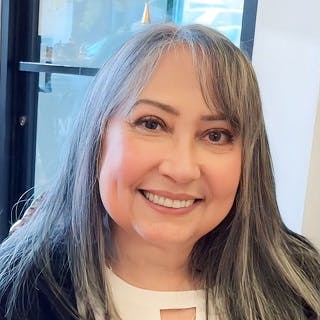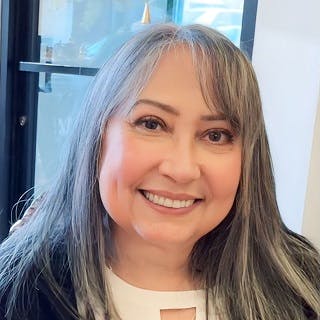Answering The Call
8 min read

Balancing Personal Faith with Pastoral Responsibilities

by Martha M. Cruz
Word and Sacrament
Like a number of you, I serve more than one congregation, which requires preparing different liturgies in keeping with each church’s traditions. Liturgy is important to me and something that I approach with reverence and joy. Even so, this past Lent felt overwhelming. Two young people at Church A received communion for the first time during Holy Week. For the first time in several years, Church B recruited new acolytes who had to be trained so they could begin serving at Maundy Thursday, Good Friday, and Easter Sunday services. There were the usual sermons to preach; congregants to visit; meetings to attend; Confirmation classes to teach; and adult Bible study to lead.
A colleague recently described this particular time of the Christian year as a pastoral “Super Bowl.” Whether you serve one congregation, two, or even three, by the time Holy Week comes around, you may be feeling overwhelmed—physically, mentally, and most important, spiritually.
And it is not just a matter of extra responsibilities during certain liturgical seasons like Lent and Advent. Exhaustion from pastoral responsibilities is real, year-round.
Although society—and perhaps even some persons in our congregations—may think that the pastor’s main job is to prepare for Sundays, your calling is not just to write sermons and preach. You are administrators, counselors, teachers. You are liaisons with other organizations in the community. You pray with the sick and accompany those who are in their final days. You comfort individuals and families in times of crisis. You mentor children and youth. You welcome others with generosity of spirit. You preside over the Sacraments. You proclaim and embody the Good News of Jesus Christ.
You give of yourselves.
And to do that, it’s important to give to yourselves as well.
There may be times when it’s difficult to find balance between your public-facing ministry and your own spiritual needs. You might feel isolated from support systems, or that you’re “running on empty.”
The analogy of putting on your own oxygen mask before trying to help others with theirs is used too often, but it does speak to your ministry role. Your spiritual wellness is essential to fruitful ministry.
Where to begin?
- Consider meeting with a spiritual director if you are not already doing so. Spiritual directors have received specialized ministry training to accompany persons in their prayer lives and faith journeys. A spiritual director is a deep listener and can help you in discerning the movement of the Spirit in your life. The Spiritual Directors International (SDI) and Spiritual Directors of Color (SDC) websites offer directories of available directors in the United States; the SDI network also includes listings of global directors. If there is a religious community or retreat center near you, check whether they can make a referral.
- The UCC’s COMPASS (Communities of Practice – A Sustaining Support) initiative, which offers resources for Communities of Practice, is grounded in the conviction that “Vibrant ministry is a communal project, not a solo endeavor. It is shaped by God’s guidance, of course, but also by our collaborative participation, by the mutual sharing of faithful gifts, challenges, questions, and insights… our prayer for you and for the whole church—clearer vision, renewed calling, flourishing ministry, transformed lives.”
- Connect with other clergy in your area, both United Church of Christ colleagues and those of other denominations and faith traditions. In coming together with other ministers facing similar challenges, you may find a safe, confidential support system.
- Journaling can help you slow down and process thoughts and experiences in your faith walk. Your story is sacred and can be a tool for reflection in the present and in the future. You don’t need to keep a written journal. Some persons find spiritual expression in drawing, painting, or music. Express your God-given creativity in whichever way is meaningful to you.
- Honor your vacation leave and days off. Granted, emergencies do arise and you may not be able to take time off. But these are usually exceptions. Use your free time for personal renewal through reading, prayer, nature, time with beloved family and friends, or solitude. Allow yourselves to truly experience Sabbath.
To help you in working toward alignment and healthy balance between your faith and the ministry to which you have been called, you may also wish to consider clergy coaching and other leadership programs.
- Among the goals of Clergy Coaching Network is “To coach to the gap—the distance between where a minister is and where God has called him/her to be.”
- The mission of CONVERGENCE (formerly the Center for Progressive Renewal) is transforming how faith communities engage with the world, and they offer video courses on topics such as “Becoming a Public Theologian for the 21st Century,” “Creating Liturgical Alignment,” and “Post-Doom Spirituality.” (Courses are available for a fee.)
Spiritual health and mental health often go hand-in-hand. The UCC Health Plan includes coverage for mental health services, with several options.
- Mental Health services may be accessed in person or virtually through Teladoc. For more information, refer to the 2025 Health Plan Highlights booklet.
- Through the Health Advocate Healthy Stewards Wellness Program, a Health Plan benefit, you can work with a Wellness Coach to set goals to support your overall wellbeing.
Above all, be gentle with yourselves as you work toward finding balance in the living out of your ministerial call. Give yourselves grace.
Some years ago, I signed up in advance for an online Advent retreat. When the time came, there were too many demands on my schedule and energy, and I bowed out. But it felt as if I had let myself—and God—down. My spiritual director offered this advice, which I turn to in those times when it feels as if I haven’t done enough: “Be easy on yourself. You can’t fail Advent.”
There is no report card. God isn’t grading you on your efforts. Yes, there will always be room for growth, new ways of praying, and different practices. Remember that God’s desire is to draw all people to Godself. God’s love and grace are sufficient.
Give yourselves grace.
Get help with self-care practices
If you are a Pension Boards member, you can speak with a Licensed Professional Counselor or Work/Life Specialist at no cost to you through the Member Assistance Program offered by Health Advocate. Through in-person visits, or confidential phone consultations, these specialists can walk you through job stress, depression, work/life balance, and more. Call 1.877.240.6863.

by Rev. Dr. Martha M. Cruz
The Rev. Dr. Martha M. Cruz is an ordained minister of Word and Sacrament in the Evangelical Lutheran Church in America, and a retired Pension Boards’ employee. She currently serves as an ELCA intentional interim pastor.
Be open to the leading of the One who is accompanying you through this, and in all, of your journeys.Rev. Dr. Martha M. Cruz
RELATED ARTICLES
Church and Ministry Today
How Financial Health and Part-Time Ministry Go Hand-In-Hand
POPULAR RESOURCES
Securing Your Foundation for the Ministry of Others
Changes in your ministry role, unexpected life events, or other personal challenges can impact your financial wellbeing and retirement plans. Secure your financial foundation.
The Realities of Money Video Reflection
The Realities of Money with Rev. Zack Jackson